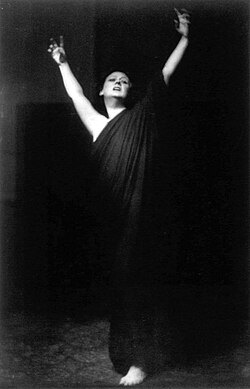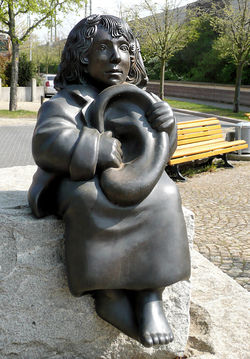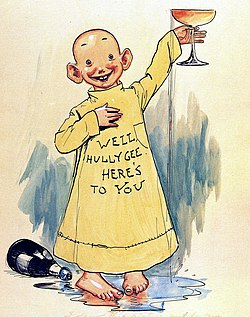
This is a list of notable barefooters, real and fictional; notable people who are known for going barefoot as a part of their public image, and whose barefoot appearance was consistently reported by media or other reliable sources, or depicted in works of fiction dedicated to them.
Contents
- Notable barefooters
- Religion, spirituality, and philosophy
- Arts and entertainment
- Businesspeople
- Sportspeople
- Other
- Fictional characters
- Anime and manga
- Literature
- Comics
- Live-action films
- Animated films
- TV series
- Video Games
- Notes
- Bibliography
- External links
A barefoot appearance can be a notable characteristic for an individual, as it has been associated with various cultural contexts throughout human history. In Ancient Greece, philosophers like Socrates and Diogenes adopted a barefoot lifestyle, and since the Middle Ages, it was seen as a sign of religious ascetism. In particular, discalceation, the practice of going constantly barefoot or clad only in sandals, is a common feature of Christian mendicant orders, practiced by the Discalced Carmelites (1568), the Feuillant Cistercians (1575), the Trinitarians (1594), the Mercedarians (1604), the Passionists, the Poor Clares and Colettine Poor Clares, and the Descalzas Reales. This is undertaken as part of vows of poverty and humility, [1] as well as a remembrance of Moses on Mount Sinai. Hindu gurus go barefoot to allow their followers to demonstrate their love and respect by pranam, the ceremonial touching of a bare foot. It is also customary in Judaism and some Christian denominations to go barefoot while mourning. [1]
The early 20th century saw the emergence of the barefoot dance movement, pioneered by Isadora Duncan, that anticipated the women's liberation movement and challenged the then prevalent perception of a barefoot appearance as being obscene. [2] In the latter half of the 20th century, many singers, primarily women, have performed barefoot, a tendency that continues in the early 21st century.
Since the 1960s, barefooting has also been associated with counterculture, in particular with the hippie and New Age movements. [3] [4] A July 1967 Time magazine study on hippie philosophy credited the foundation of the hippie movement with historical precedent dating back to the aforementioned religious and spiritual figures of the ancient times, including Diogenes and the sadhu of India. [5]
Following the example of Steve Jobs (who was influenced by the hippie movement), barefooting became a trend in American corporate culture. A number of entrepreneurs maintain a casual public image and appear barefoot or wearing sandals even on formal occasions. [6] [7] [8]
Nowadays people who have a preference for not wearing shoes in public are striving for the recognition of barefoot lifestyle, against the social stigma associated with barefooting, and for the abolition of laws and regulations that prohibit going barefoot in certain places. [9] [10] [11] In particular, in the 2020s, it became a trend among various celebrities to appear barefoot in public, a tendency reinforced by TikTok. [12] [13] [14] [15] [16]















